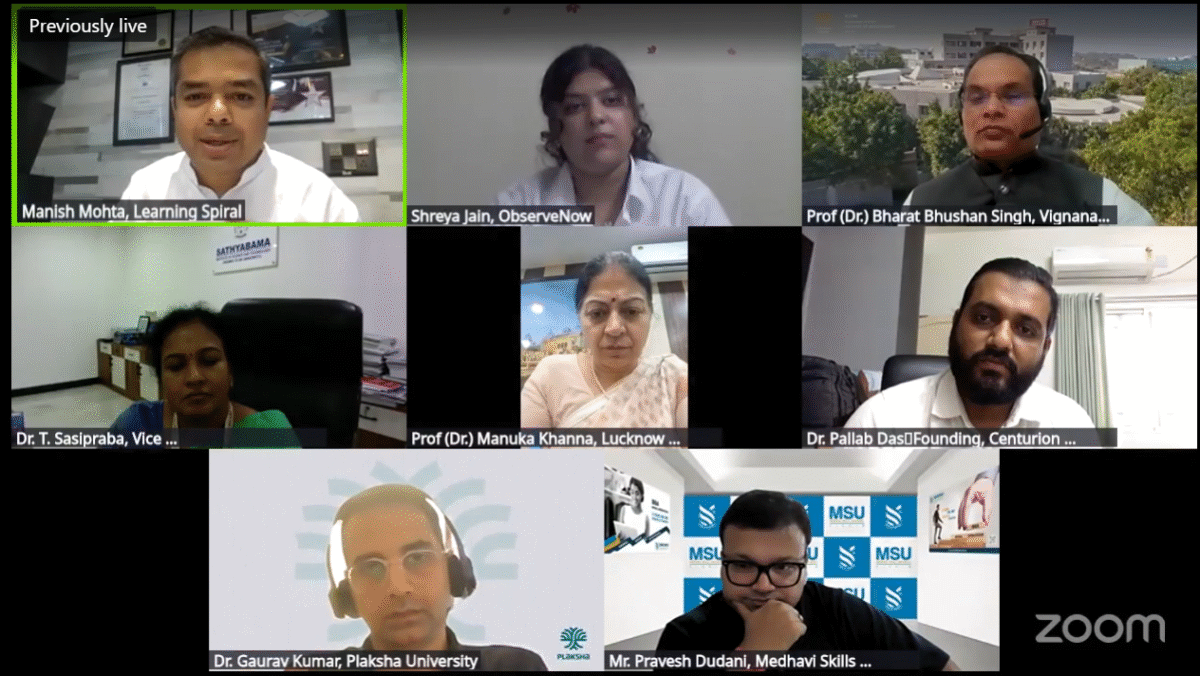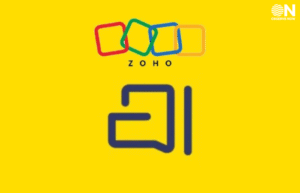Accelerating Academic Outcomes: Education Leaders Debate 24-Hour Result Announcements at ObserveNow–Learning Spiral Webinar

In India, where university exam results can take 30 to 70 days to reach students, the idea of announcing scores and delivering feedback within 24 hours sounds almost radical. But with the growing adoption of AI-based assessment systems and increasing student expectations for real-time academic outcomes, institutions are being forced to rethink the way results are processed, published, and communicated.
This urgent need for reform was at the heart of a recent national webinar hosted by ObserveNow Media in collaboration with Learning Spiral, powered by AWS. The session—“Transform Your Process: Achieve Result Announcements and Student Feedback in Less Than 24 Hours”—brought together top education leaders from across the country to discuss what it will truly take to make faster, smarter evaluation cycles a reality in Indian higher education.
The webinar was moderated by Manish Mohta, Managing Director of Learning Spiral, and hosted by Shreya Jain, Digital Journalist at ObserveNow. “We’re not just talking about making evaluations faster—we’re talking about making them smarter, scalable, and transparent,” said Mohta. “With the right mix of AI, design thinking, and institutional intent, academic workflows can absolutely be reimagined to serve students better.”
India’s examination ecosystem is notoriously manual and overburdened. Public universities often deal with tens of thousands of students, paper-based answer scripts, and limited digital infrastructure. Dr. Manuka Khanna, Pro Vice Chancellor at Lucknow University, outlined the challenge starkly. “With 561 affiliated colleges and thousands of scripts to manually evaluate, expecting 24-hour result turnaround is simply not feasible. It’s not just about speed—it’s about accuracy and scale.” Her university processes answer sheets from more than 30,000 students across five districts, relying largely on manual, coded evaluation methods that require multiple layers of anonymity, scanning, and result collation.
From a more flexible model, Mr. Pravesh Dudani, Chancellor of Medhavi Skills University, shared, “Skill-based institutions face different bottlenecks: industry projects, on-the-job training, and practical vivas. We assess students on multiple dimensions, and that naturally takes time,” he said. “But with continued digital innovation, a 7-day result cycle is achievable and realistic.”
A critical distinction made during the discussion was between result announcements and qualitative student feedback. “Quick result announcements are possible with technology, but detailed, meaningful feedback for students—that takes time and human insight,” said Dr. Gaurav Kumar, Associate Director at Plaksha University. “We need to differentiate between scores and real learning. This resonates with a larger issue across India’s education system: high-stakes exams offer little to no insight to students about where they went wrong or how to improve.”
Dr. T. Sasipraba, Vice Chancellor of Sathyabama Institute of Science & Technology, acknowledged institutional constraints, and expressed optimism. “A 24-hour turnaround isn’t realistic right now, but with AI-supported tools and better systems, we can reach a 7-day cycle,” she said. “Mature tools for evaluating subjective scripts—especially in humanities—are still under development, but they’re coming.” She said, “There’s a need for AI tools integrated with Large Language Models that can handle nuanced script evaluation, flag errors, and offer actionable feedback without compromising fairness.”
“Education is no longer a one-way broadcast. Students now expect responsiveness—even in assessments. It’s not about whether it can be done—it must be done,” said Prof. (Dr.) Bharat Bhushan Singh, Director, Vignana Jyothi Institute of Management. “Today’s learners expect fast, actionable feedback. The old timelines don’t match their expectations. In my own B-school students seek instant post-project feedback on their performance in simulations, branding strategies, and case studies, often dissatisfied with just oral evaluations.”
Closing the loop on possibility, Dr. Pallab Das, Founding Dean at Centurion University, reflected on AI’s growing impact beyond education. “If our judicial systems are turning to AI for speed and accuracy, so can education,” he said. “With the right tools and data, even subjective script evaluation can be reimagined for faster outcomes. Human oversight will remain essential, but AI can support the evaluator, not replace them—making hybrid models the most viable near-term solution.”
Throughout the webinar, it became evident that while 24-hour result delivery remains aspirational for many institutions, there is a growing consensus that the shift toward faster, tech-enabled evaluations is not only necessary—but inevitable. Panelists agreed that real transformation will require a blend of institutional will, digital infrastructure, and policy alignment.
The session concluded with a shared sense of urgency and optimism. By enabling this open dialogue, Learning Spiral, alongside ObserveNow, created a timely platform for educators to voice real-world constraints, explore scalable solutions, and align on a future where result processing is not an afterthought—but an integral part of student success.
















